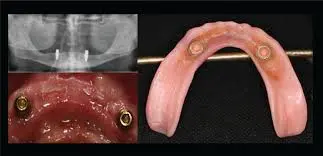- Home
- Medical news & Guidelines
- Anesthesiology
- Cardiology and CTVS
- Critical Care
- Dentistry
- Dermatology
- Diabetes and Endocrinology
- ENT
- Gastroenterology
- Medicine
- Nephrology
- Neurology
- Obstretics-Gynaecology
- Oncology
- Ophthalmology
- Orthopaedics
- Pediatrics-Neonatology
- Psychiatry
- Pulmonology
- Radiology
- Surgery
- Urology
- Laboratory Medicine
- Diet
- Nursing
- Paramedical
- Physiotherapy
- Health news
- Fact Check
- Bone Health Fact Check
- Brain Health Fact Check
- Cancer Related Fact Check
- Child Care Fact Check
- Dental and oral health fact check
- Diabetes and metabolic health fact check
- Diet and Nutrition Fact Check
- Eye and ENT Care Fact Check
- Fitness fact check
- Gut health fact check
- Heart health fact check
- Kidney health fact check
- Medical education fact check
- Men's health fact check
- Respiratory fact check
- Skin and hair care fact check
- Vaccine and Immunization fact check
- Women's health fact check
- AYUSH
- State News
- Andaman and Nicobar Islands
- Andhra Pradesh
- Arunachal Pradesh
- Assam
- Bihar
- Chandigarh
- Chattisgarh
- Dadra and Nagar Haveli
- Daman and Diu
- Delhi
- Goa
- Gujarat
- Haryana
- Himachal Pradesh
- Jammu & Kashmir
- Jharkhand
- Karnataka
- Kerala
- Ladakh
- Lakshadweep
- Madhya Pradesh
- Maharashtra
- Manipur
- Meghalaya
- Mizoram
- Nagaland
- Odisha
- Puducherry
- Punjab
- Rajasthan
- Sikkim
- Tamil Nadu
- Telangana
- Tripura
- Uttar Pradesh
- Uttrakhand
- West Bengal
- Medical Education
- Industry
Smoking and Implant Surface linked to risk of Dental Implant Failure: Study

Researchers have found in a systematic review and metaanalysis that smoking increases the risk of dental implant failure. Both observational and randomized trials support the use of anodized implants for improved success rates. The review identified Multiple risk factors, though further high-quality research is needed to evaluate the remaining factors and develop reliable clinical guidelines.
The evidence concerning factors leading to implant failure remains inconclusive. Existing systematic reviews have reported mixed results for patient-related, surgical, and prosthetic factors contributing to implant failure. The purpose of this umbrella review was to summarize the evidence and assess existing biases from meta-analyses of randomized controlled trials (RCTs) and observational (cohort and case-control) studies to establish clinically relevant factors associated with implant failure. The study had been registered with the International Prospective Register of Systematic Reviews (PROSPERO) (CRD42025634487).
The Scopus, PubMed, the Cochrane Database of Systematic Reviews, and Epistemonikos databases were searched from inception until June 2024, and the effect sizes were recalculated using a random-effects model for each meta-analysis. Between-study heterogeneity, 95% prediction interval, small-study effects, excess significance, and credibility ceilings were evaluated. The credibility of evidence from meta-analyses of cohort and case-control studies was ranked by established criteria as nonsignificant, weak, suggestive, highly suggestive, or convincing. RESULTS: A total of 2922 publications were identified, 224 full-texts were evaluated, and 25 articles describing 35 associations were included in the study. Among meta-analyses of RCTs (n=9), 6 (67%) statistically significant associations were identified (P<.05).
According to the GRADE assessment, turned versus anodized implants, submerged versus nonsubmerged implant healing, and bone augmentation with long implants versus short implants were associated with a higher risk of implant failure (high certainty evidence). Short implants (<10 mm) versus long implants (>10 mm) and immediate versus delayed implant placement were associated with higher risk for implant failure (moderate certainty evidence). Among the meta-analyses of cohort and case-control studies (n=26), 18 (69%) associations were statistically significant (P<.05). None were graded as convincing. Highly suggestive evidence was established for the association between smoking and implant failure. Suggestive evidence emerged for associations including periodontally compromised versus periodontally healthy patients, proton pump inhibitor therapy, Crohn's disease, bone quality type II versus type IV, bone quality type III versus type IV, nonsubmerged immediately loaded versus submerged delayed loaded implants, short implants (<10 mm) versus long implants (>10 mm), selective serotonin re-uptake inhibitor therapy, turned versus anodized implants, and immediately loaded versus conventionally loaded implants.
These findings remained robust after sensitivity analyses.Observational studies suggest that smoking is associated with an increased incidence of implant failure. Evidence from observational and randomized trials has supported using anodized implants for better outcomes. Several factors were identified as leading to an increased risk of dental implant failure. The remaining factors require additional high-quality studies for better assessment and clinical recommendations.
Reference:
Giok, Koay Chun, et al. "Factors Leading to Implant Failure: an Umbrella Review of Meta-analyses of Observational Studies and Trials." The Journal of Prosthetic Dentistry, 2025.
Dr. Shravani Dali has completed her BDS from Pravara institute of medical sciences, loni. Following which she extensively worked in the healthcare sector for 2+ years. She has been actively involved in writing blogs in field of health and wellness. Currently she is pursuing her Masters of public health-health administration from Tata institute of social sciences. She can be contacted at editorial@medicaldialogues.in.
Dr Kamal Kant Kohli-MBBS, DTCD- a chest specialist with more than 30 years of practice and a flair for writing clinical articles, Dr Kamal Kant Kohli joined Medical Dialogues as a Chief Editor of Medical News. Besides writing articles, as an editor, he proofreads and verifies all the medical content published on Medical Dialogues including those coming from journals, studies,medical conferences,guidelines etc. Email: drkohli@medicaldialogues.in. Contact no. 011-43720751


